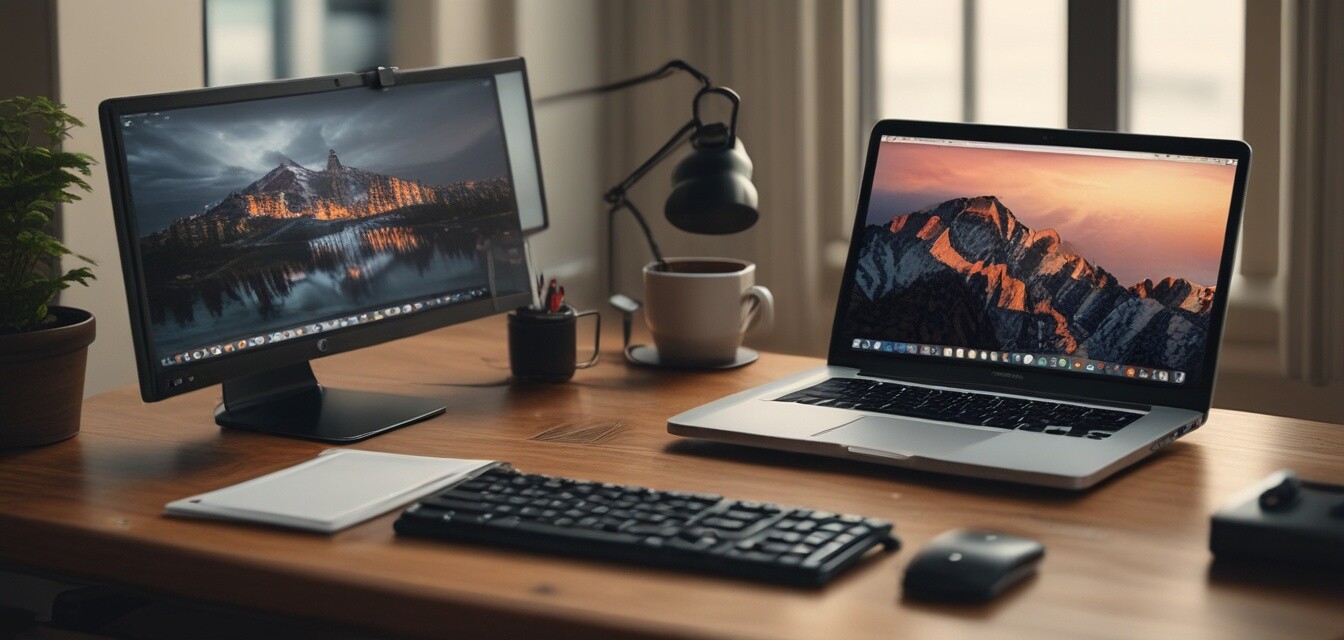
Desktop vs. Laptop: Which is Best for You?
Key Takeaways
- Desktops offer better performance and expandability.
- Laptops provide portability and convenience.
- Consider your working environment and specific needs before making a choice.
- Budget plays a significant role in selecting between desktops and laptops.
- Evaluate battery life, screen size, and specifications carefully.
Choosing between a desktop and a laptop can be a daunting task. Each option has its pros and cons, and the best choice largely depends on your individual needs. In this article, we will explore the key differences between desktops and laptops to help you make an informed decision.
Understanding the Basics
To make an effective comparison, let's define what each type of computer is:
- Desktop: A stationary personal computer designed for regular use at a single location. They are usually more powerful than laptops.
- Laptop: A portable computer that can be used in various settings. It combines all the components of a desktop into a compact and foldable design.
Benefits of Desktops
Pros
- High performance: Desktops often have faster processors and more RAM than laptops at a similar price point.
- Upgradability: Desktops can easily be upgraded with new hardware components like additional RAM, better graphics cards, and larger storage.
- Cost-effective: Generally, you can get more performance for your money with a desktop.
- Better cooling: Desktops can accommodate larger cooling systems, improving overall performance during intensive tasks.
Cons
- Lack of portability: Desktops are bulky and require a dedicated workspace.
- More space needed: A desktop setup usually requires a desk and additional peripherals like a monitor, mouse, and keyboard.
Benefits of Laptops
Pros
- Portability: Laptops are compact and lightweight, making it easy to work from anywhere.
- Built-in components: Laptops include screens, keyboards, and battery packs, eliminating the need for additional peripherals.
- Less power consumption: Laptops generally use less electricity than desktops, which can lower energy bills.
- Readily available features: Many laptops come with features such as touch screens, built-in webcams, and Wi-Fi connectivity.
Cons
- Lower performance: Laptops usually have less powerful processors and RAM compared to desktops.
- Limited upgrade options: Upgrading a laptop's hardware can be more difficult and often more limited than desktops.
- Battery life concerns: Depending on usage, battery life can limit how long you can work without needing a power outlet.
Key Differences in Performance and Specs
Here is a quick comparison table to highlight the main performance differences between desktops and laptops:
| Specification | Desktop | Laptop |
|---|---|---|
| Performance | High; can support powerful hardware. | Good; limited compared to desktops. |
| Upgradeability | Highly upgradeable (components can be swapped). | Limited (mostly RAM and storage). |
| Price | More affordable for similar specs. | Usually more expensive for equivalent performance. |
| Portability | Stationary; needs a dedicated space. | Portable; easy to carry and use anywhere. |
| Power Consumption | Higher; uses more electricity. | Lower; designed for efficiency. |
Choosing What Fits You Best
When deciding between a desktop and a laptop, consider the following factors:
- Usage: What will you primarily use the computer for? Gaming, content creation, or general tasks?
- Space: Do you have enough room for a permanent desktop setup?
- Budget: How much are you willing to spend? Keep an eye on overall value versus performance.
- Future-proofing: How long do you expect the device to last? A desktop might be better for upgrades over time.
Evaluate these factors based on your lifestyle to make the best choice. If you find yourself needing the power and upgradability of a desktop PC, then it might be the right option for you. However, for those who need flexibility, a laptop might suit your needs better.
Final Thoughts
Both desktops and laptops have their unique advantages and drawbacks. Understanding the key differences and assessing your personal requirements can help you make the best choice for your computing needs. Explore our Buying Guides for more insights and recommendations on various devices.